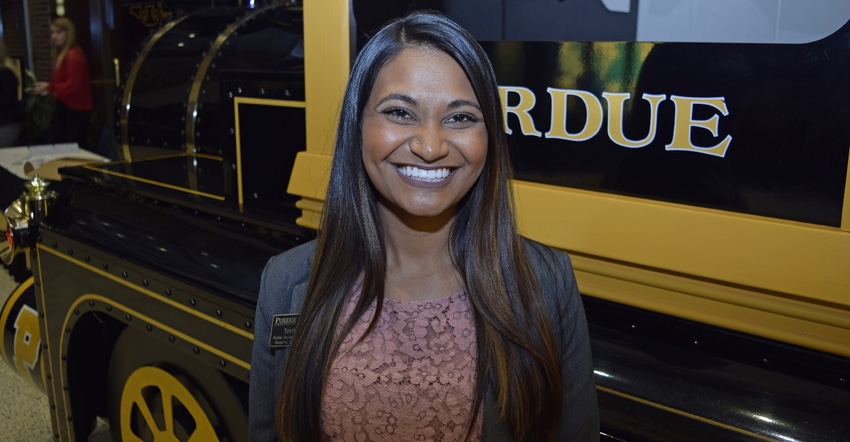December 23, 2020

Being a woman of color in agriculture never fails to be a challenge, especially this year. Often, I am the only person of color in a room. This leads to stares and assumptions about me. I receive comments of how rare it is for “someone like me” to be in agriculture.
That assumes I wasn’t born and raised in Indiana and questions how my English is so good — I have a Midwestern accent! None of these questions would ever be asked of a white man. While most people aren’t intentionally racist or sexist, these misperceptions dehumanize people like me. They create an immense amount of discomfort, hatred and division, which is why it’s vital to reflect on the biases we have and work to unlearn them.
Related: Agriculture should have ‘hard conversations’
I am challenging the agriculture industry to do better and be better, because I care about the people within this industry and the people it serves. Becoming fully immersed in the agriculture industry has shown me many of its sides. Some people are accepting and loving of all, while others are bitter and resentful to anyone who doesn’t look like a white man.
I’ve come across these bitter and resentful people one too many times within an industry that is supposed to welcome and serve every type of person. I believe 2020 has revealed everyone’s character. It’s shown who fights for people who are being treated unfairly, who condemns oppression and discrimination, and who has an individualistic perspective rather than a wholistic one. What do you do or think when people of color, women, people of the LGBTQ+ community or immigrants are being punished for being themselves?
I challenge this industry partly because of its history. The fields we now farm were once tended by enslaved Black people, owned by only white men and stolen from Native Americans. The biases some people in this industry hold stem deep from our roots. These biases in the agriculture industry often lead to discriminating against women, Blacks, indigenous people and people of color, the LGBTQ+ community, people from urban or suburban backgrounds, and more. We limit our own ability to understand fellow peers or consumers, love every person, and contribute to a free and just nation by having destructive biases. These unconscious thoughts lead to a continuation of oppression and discrimination, which creates a more divisive and exclusive industry.
If we, as individuals and as an industry, want to be better, we must address these internal biases and the injustices our industry continues to create. We must raise future generations to value all people equally, regardless of race, religion or sex. This doesn’t just mean respecting them; this means fighting for them when policies act against them.
This also means having difficult conversations, and this means having true empathy. Sharing, listening and valuing perspectives that differ from ours is a powerful tool, and I encourage everyone to utilize it.
Jogi is a senior in agricultural communication at Purdue University. She was a member of the 2016-17 Indiana FFA officer team and a Purdue University Agriculture ambassador.
You May Also Like




